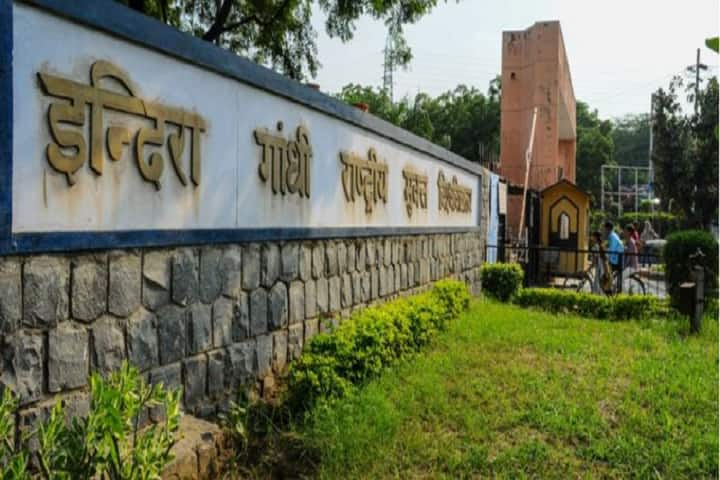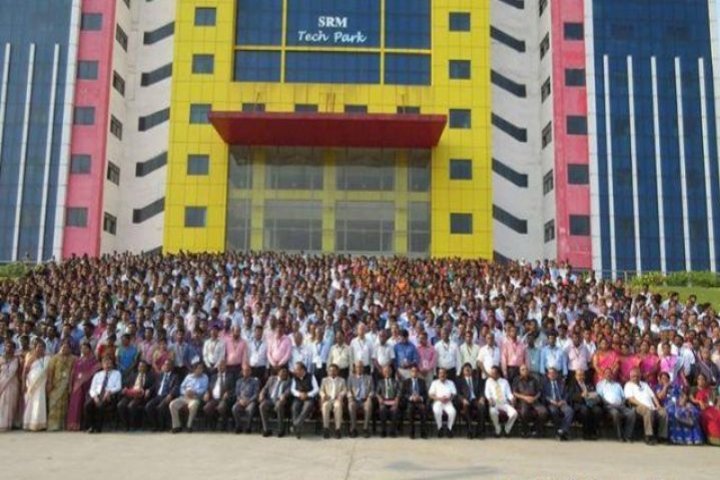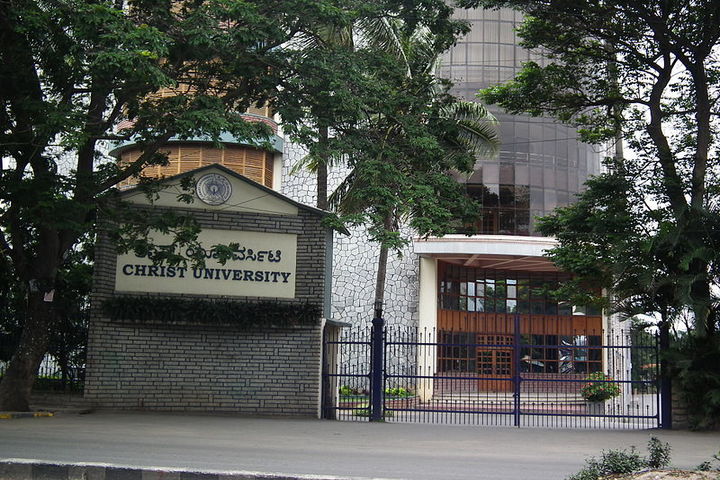
Networking, Hardware and Security Course Details - Fees, Subjects, Syllabus, Duration, Eligibility, Career Scope
Degrees offered: Diploma, B.Voc., B.Sc., B.Sc.(Hons), BS
What is Networking, Hardware and Security
Networking, Hardware and Security involves the technologies that allow computers to exchange data or information within the network. Candidates who pursue Networking, Hardware and Security courses like BCA, MCA, B.Sc, M.Sc can find lucrative job opportunities in national and international companies. Security is designed to protect the usability and integrity of network and data. The increasing usage of computers, laptops, smartphones, and the internet has led to tremendous growth in the IT industry. Networking, Hardware and Security courses range from certificate level to master’s level.
Networking, Hardware and Security Course Highlights
Particulars | Values |
Branch Name | Networking, Hardware and Security |
Degree | BCA, MCA, B.Sc, M.Sc |
Duration | B.Sc (3 Years) BCA (3 Years) M.Sc (2 Years) MCA (3 Years) |
Eligibility | B.Sc, BCA (10+2) M.Sc, MCA (Bachelor’s degree) |
Admission Process | |
Course Fees | Bachelor’s (Rs 1,50,000 to Rs 4,00,000) Master’s (Rs 75,000 to Rs 3,00,000) |
Top Colleges | Birla Institute of Technology & Science, Sri Venkateswara University, Chitkara University, SRM Institute of Science and Technology, GNA University, SAGE University, School of Engineering and Technology |
Career Options | Network Engineer, Network Specialist, Information Technology Consultant, Network Security Engineer, Technical Consultant |
Average Salary | Rs. 4 Lakhs to 10 Lakhs Per Annum |
Recruiting Companies | Wipro, Cisco, Juniper, Huawei, Intel Corporation, Acer India (Pvt) Ltd, Dell, Casio India Company, HCL, TCS, Infosys |
Specialization or Similar Ones
There are several colleges and universities in India that offer similar types of courses and specializations in Networking, Hardware and Security. Those courses provide similar types of prospects after completing the degree. The specialization offers students a chance to build expertise and skills into a particular domain of the degree. Students can pursue specializations like computer hardware, hardware networking, and hardware management. Some of the specializations in Networking, Hardware and Security are as follows:
BCA Hardware and Networking | |
MCA in Networking | B.Sc Networking Technology |
Eligibility Criteria (UG & PG) of Networking, Hardware and Security
Candidates who want to enroll in any UG or PG courses have to clear 10+2 for a bachelor’s and graduation for master’s programs. Some institutions also conduct entrance examinations for providing admission. After completion of the degree, candidates can make their career in networking. The eligibility criteria for UG and PG courses are as under:
Eligibility Criteria UG Courses
Candidates who are interested in pursuing a Networking, Hardware and Security course after 10+2 have plenty of options to choose from. There are several colleges that offer UG courses on the basis of the following criteria:
Candidates must have completed 10+2 in any stream from a recognized board or institution.
Candidates must have attained 50+ percent in 10+2.
Candidates need to appear for the entrance examination. The admission is done with the help of marks scored in the test.
Top Entrance Exam for UG Courses
JEE Main: For admission to top colleges in India, candidates who wish to pursue a degree in Networking, Hardware and Security must qualify the JEE Main test. Check below all the important information about the test:
WBJEE: Candidates who want to pursue a bachelor’s degree in Networking, Hardware and Security should clear WBJEE Entrance Exam for getting admission to top colleges in West Bengal. Applicants can find all relevant information about the entrance test in the following table:
BITSAT: Applicants who want to pursue Networking, Hardware and Security at Birla Institute of technology and sciences must appear for the BITSAT entrance examination. Interested candidates can find all the relevant information about the test below:
SRMJEEE: For getting admission at SRM college, candidates who wish to pursue a bachelor’s degree in Networking, Hardware and Security must clear SRMJEEE. All the relevant information about the test is mentioned below:
Eligibility Criteria for PG Courses
Applicants who are interested in pursuing a master’s program in Networking, Hardware and Security should have completed graduation in any stream. Candidates can apply to various colleges and universities for the degree. The eligibility criteria vary from college to college. The following points are mandatory for getting admission in PG Courses:
Candidates should have completed their graduation in any stream (BCA, B.SC, B.Com) from a recognized college.
He or She must have scored at least 50% marks at the undergraduate level.
Candidates have to undergo a university-level entrance examination.
IPU CET: Candidates who want to pursue PG in Networking, Hardware and Security must clear the IPU CET entrance exam for getting admission at Indraprastha University. The admission is conducted based on the marks scored in the test. The applicant should have completed graduation in any stream.
VITMEE: Candidates interested in pursuing a master’s degree in Vellore institute of technology should qualify VITEEE exam Candidates can find all the relevant information about the VITEEE test below:
College Predictors VIEW ALL
Scope of Networking, Hardware and Security in India and Abroad
Networking, Hardware and Security has a much broader scope. All three components play an important role in the smooth functioning of electronic devices. Companies look for network, hardware, and security professionals to provide solutions to troubleshoot or network problems. Over the years, network, hardware engineers have been in high demand. The IT companies have increased their networks that help in providing employment opportunities to the technicians. After completing a degree in networking, hardware, and security, candidates opt for careers as desktop support engineers, system administrators, data analysts, and many more as companies seek candidates who are trained and specialized in particular courses. The average salary for a candidate should be in the range of Rs 4 lakhs to 6 lakhs.
Course Fees Networking, Hardware and Security
| Minimum Fees | Maximum Fees | |||
|---|---|---|---|---|
| Private | Government | Private | Government | |
| UG | ||||
| PG | ||||
| DIPLOMA | ||||
Course Subjects
Students in Networking, Hardware and Security courses are being trained in a particular course they are pursuing. For all the courses, the subjects may differ from one college to another. The following is the list of topics covered in Networking, Hardware and Security courses in India by different colleges and universities. Some of the topics are given below:
B.Sc in Hardware and networking Subjects
Semester 1 | Semester 2 |
PC Assembling & Troubleshooting | Computer Networks |
Programming in C | Windows 2003 Server Administration |
Communication & Soft Skills | Linux Administration |
Hardware Lab I (PC Assembling & Troubleshooting) | Database Administration |
- | Software Lab I (Windows 2003 Server & Linux) |
Semester 3 | Semester 4 |
Discrete Mathematics | Network Routing Technologies |
Computer Organisation | Router Configuration & Security |
IT Applications in Business | Network Switching Technologies |
Digital Communication | WAN Technologies |
Software Lab I (IT Applications in Business | Hardware Lab I (Network Routing & WAN Technologies) |
Semester 5 | Semester 6 |
Advanced OS Concept with MS-Windows Client | Linux Server Management |
Managing & Maintaining Microsoft Windows Server | Wireless Networking |
Microsoft Windows Network Infrastructure | Security Essentials |
Implementing & Managing Microsoft Exchange Server | Project (PC Assembling) |
Software Lab I (Microsoft Client & Server) | Hardware Lab I (Linux Server Management & Security Essentials |
M.Tech in Computer Systems and Networking
Semester 1 | Semester 2 |
Principles of Digital & Data Communication | Wireless Networks |
Computer Networks | Cryptography and Network Security |
Design and Analysis of Algorithms | JEE |
Distributed System and Transaction Processing | Performance Modelling and Queuing Theory |
Internet Programming | Elective I |
Mini Project I | Mini Project II |
Seminar | Seminar |
Semester 3 | Semester 4 |
Optical Networks | Dissertation |
Elective II | Seminar |
Preliminary Project Work | Elective I |
Mini Project III | Embedded Systems and Real-Time Operating Systems |
Seminar | Advanced Computer Architecture |
- | Multimedia Networks |
- | Elective II |
- | Sensor Networks |
- | Network Management |
- | Grid Computing |
Careers in Networking, Hardware and Security
Candidates either go for higher studies or aim to work at a reputed company after completing UG or PG degree in Networking, Hardware and Security courses. The industry is quite developed and is in dire need of professionals both experienced and skilled. Some of the popular job profiles are listed below:
Networking Engineer | A network engineer professional must be capable of administering, implementing, maintaining computer networks, hardware, and security systems. |
Desktop Support Engineer | He or She provides support in networking, hardware issues, checks glitches, works on installation of desktop, operation system, and many more. |
Network Specialists | He or She is responsible for managing networks to ensure their efficiency. They are also tasked with collecting network performance data, monitoring network security, troubleshooting issues, and other issues. |
Technical Support | They maintain, repair and manage IT systems. Tasks like diagnosing and repairing, resolving networks, and installing and configuring hardware and software of the organization. |
Security Database Administrator | He or She coordinates changes, implements security measures to safeguard computer databases, and also applies knowledge to database management systems. |
Upcoming trends
Computer networking, hardware, and security play an important role in the smooth functioning of devices in the organization. For every troubleshoot or any glitch, a professional is required to solve it. Organizations, by and large, are looking for individuals who can provide solutions. Around 3.5 million professionals are directly involved in the IT sector and 10 million people are indirectly involved, as per the NASSCOM while Networking and Hardware are the fastest growing domain in the IT sector.
Job Profiles and Top Recruiters
Companies in India employ undergraduates and postgraduates of Networking, Hardware and Security degrees. The job profile depends on the educational credentials and expertise in the particular field. Some of the top recruiting companies are:
Cisco
TCS
HCL
Wipro
Intel Corporation
Acer Technologies
Dell
Casio India Company
Huawei
Infosys
SK International
Average Salary
Candidates can apply to a number of companies. They can find various roles based on their experience and specializations. Advancements in technologies have increased the demand for network, hardware professionals in the industry. There are a variety of job roles depending on the nature of designation. Some of the roles are as under:
Careers | Average Salary (Per Annum) |
Network Engineer | Rs. 5.5 Lakhs |
Desktop Support Engineer | Rs. 3.0 Lakhs |
Network Specialist | Rs 7.70 Lakhs |
Technical Support | Rs. 3.0 Lakhs |
Security Database Administrator | Rs. 6. 67 Lakhs |
Required Skillset for Networking, Hardware and Security
Several skills along with the degree in networking hardware and security help candidates to find a good job in a reputed organization. Candidates who wish to pursue a career in Networking, Hardware and Security courses must possess a specific set of skills. Here, we have listed some of the important skills for becoming a well-organized professional:
Good Programming skills | Analytical abilities |
Technical skills | Problem Solving |
Multitasking | Understanding LAN and WAN |
Course Curriculum for Networking, Hardware and Security
The Networking, Hardware and Security courses have a much broader scope. The course content depends on the college. It varies from college to college. Opting for a Networking, Hardware and Security course, students can get in-depth learning and skills that are necessary for candidates to land a good job. It covers the basic understanding of the course:
Students can get in-depth learning about hardware components BIOS, CMOS and BOOT process, network types, operating systems, and much more.
To fully understand the network standards, its creation, troubleshooting, and carrying out tasks such as computer assembling and disassembling.
Top Networking, Hardware and Security Colleges in India
There are various colleges in India offering Networking, Hardware and Security UG and PG courses. The admission varies from one college to another. The admission selection process is based on merit and marks obtained in entrance examinations. Some of the top Networking, Hardware and Security colleges are described below:
Top Private Networking, Hardware and Security Colleges in India
Several private colleges in India offer a degree in Networking, Hardware and Security. The admission process varies from college to college. Here, we have listed some of the top private colleges for Networking, Hardware and Security UG and PG courses:
MSRIT Bangalore |
Top Government Networking, Hardware and Security Colleges in India
There are several government colleges in India that offer Networking, Hardware and Security colleges. The admission to these colleges is based on merit and entrance exams. Tuition fee varies from college to college. Some of the top government colleges are listed below:
Popular Networking, Hardware and Security Entrance Exams in India
Frequently Asked Questions (FAQs)
Question: What are the eligibility criteria for UG courses?
Answer :
A candidate must have completed 10+2 in any stream from a recognized board or institution. He or She needs to appear for the entrance examination.
Question: What are the skills required for the Networking, Hardware and Security course?
Answer :
The popular required skills are creative and analytical abilities, good programming skills, computer maintenance, repair understanding, and many more.
Question: Who are the top recruiters after completing a Networking, Hardware and Security course?
Answer :
The popular recruiting companies offering jobs are TCS, HCL, Wipro, Intel Corporation, Acer Technologies, and others.
Question: What are the career opportunities after pursuing a Networking, Hardware and Security course?
Answer :
The major roles after pursuing a Networking, Hardware and Security course are Technical Support Engineer, Network Engineer, System Administrator, Project Leader, Network Administrator, and many more.
Question: Which is the best college for Networking, Hardware and Security courses?
Answer :
Some of the best colleges are ;
RVCE Bangalore | Marian College, Kuttikkanam |
Presidency College, Bangalore | Symbiosis Institute of Computer Studies and Research, Pune |
Question: What is the average salary after completing the course?
Answer :
The salary depends on the role a candidate has been offered. The average salary starts from around Rs. 3 Lakhs to Rs 4 Lakhs per annum.
Question: How much does it cost to pursue Networking, Hardware and Security courses?
Answer :
The tuition fee varies from one college to another. The average fee charged by the college is around Rs. 1,50,000 to Rs. 3,00,000 for Bachelor’s and Rs. 75,000 to Rs. 3,00,000 for Master’s.
Question: Is it worth pursuing Networking, Hardware and Security courses?
Answer :
The course multiplies your chances of getting a lucrative job in a reputed company.
Question: What is the duration of Networking, Hardware and Security courses?
Answer :
The duration of the course depends on the level of study a candidate is pursuing. For UG, it is three years and at the PG level, it is two years.
Question: What is Networking, Hardware and Security Course?
Answer :
The course provides undergraduates and graduates with a complete edge in the IT world. From managing, organizing a system and fully understanding the network standards, its creation, troubleshooting, and carrying out tasks such as computer assembling and disassembling.




















